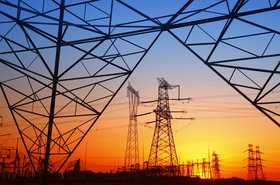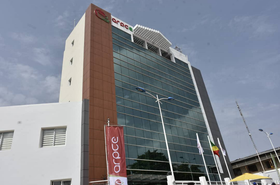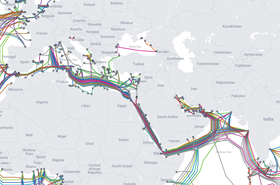South Africa's state power utility Eskom has warned that it may have to increase power cuts to an unprecedented level this winter, as the country's power crisis continues.
Calib Cassim, Eskom’s acting chief executive, said that it is "going to be a difficult winter" for the country, with potential outages lasting for as long as 16 hours.
It means that the rolling blackouts in the country could hit record levels in the coming months unless Eskom can prevent its fleet of power plants from being overwhelmed by breakdowns.
Many households and businesses in Africa are already facing scheduled electricity outages for more than 10 hours a day.
“The winter outlook indicates an increased risk of supply shortfall against expected demand, with our worst-case scenario indicating that load-shedding could intensify to Stage 8 if our interventions are not successful,” Cassim said.
Prior to this point, Eskom has not yet gone beyond Stage 6 power cuts, which requires 6,000 megawatts to be shed from the national grid, though this winter it could move to Stage 8, warned the company, meaning that power outages could last up to 16 hours in a 32-hour cycle.
The company took to Twitter to announce Stage 3 load-shedding will be implemented from 5:00 am to 4:00 pm today (May 22), revealing that a generation unit at Duvha Power Station was taken out of service over the weekend due to a breakdown.
Stage 4 load-shedding was implemented by Eskom yesterday from 4:00 pm to 5:00 am in the early hours of this morning.
Eskom relies on aging coal-fired power plants, which are prone to breakdowns. The company has struggled to raise the money to buy diesel for emergency generators, is reportedly $22.7 billion in debt, and is reliant on government bailouts.
The country has long suffered from rolling blackouts, with the nation hit by Stage 6 power cuts in September of last year, forcing Eskom to cut 6,000 megawatts from the national grid after generation units failed at the Kusile and Kriel power stations.
At the time, Eskom CEO Andre de Ruyter dismissed fears of a total blackout as "not an imminent risk" for the country.
The country saw its worst year for power cuts last year, with 205 days of rolling blackouts. Eskom claims cuts reduced the country's GDP by around five percent.
Earlier this year, Eskom revealed that 11 generators amounting to 5,084MW of capacity suffered breakdowns, which further reduced available capacity and meant it was necessary to introduce load-shedding measures.










